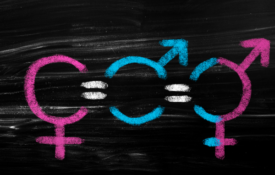-
How to Build Positive, Long-Lasting Habits, According to Psychologists
For many of us, the past year has disrupted deeply ingrained habits. Some people report exercising less, others are drinking more. As we look forward to life returning to some semblance of normal, it's worth considering what scientists have learned about how to create good habits and break bad ones. Habits are like shortcuts — they're things we can do quickly and without thinking because we've done them so often they've become automatic, says behavioral scientist Katy Milkman of the University of Pennsylvania.
-

The Brain’s ‘Prediction Machine’ Anticipates the Future When Listening to Music
New research published in the journal Psychological Science explores the brain’s “prediction machine” capabilities by examining how we experience music.
-
The Science of Us
No one could accuse the boy’s self-appointed trainers of lacking ambition or being sticklers for ethical research. Psychologist John Watson of Johns Hopkins University and his graduate student Rosalie Rayner first observed that a 9-month-old boy, identified as Albert B., sat placidly when the researchers placed a white rat in front of him. In tests two months later, one of the researchers presented the rodent, and just as the child brought his hand to pet it, the other scientist stood behind Albert and clang a metal rod with a hammer.
-

Gender in a Nonbinary World
Thekla Morgenroth with the University of Exeter in the United Kingdom shares their research on gender, inclusion, and transgender rights.
-
What Kind of Training Does it Take to Become a World-Beating Athlete?
So you’re fired up from watching the action at the Tokyo Olympics, and ready to sign up your toddler for year-round travel judo so she can start racking up those 10,000 hours? Hold that thought. A new study published in Perspectives in Psychological Science wades into the long-standing debate about skill acquisition and talent development – a debate that, over the past two decades, has spilled out of psychology departments and elite sports institutes and into the broader public discourse. ...
-

New Research in Psychological Science
A sample of research on visual illusions, the use of gestures to communicate, well-being and altruism across nations, sensory encoding, empathy, semantic similarity and attention, the neuronal processing of faces, categorical perception, and a learning disability affecting the acquisition of arithmetic skills.

